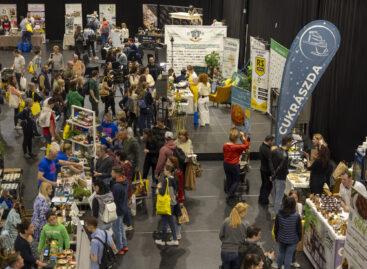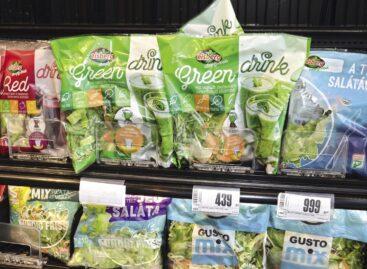Not only Jews eat kosher food – but are they healthier?
According to American research, forty percent of non-Jewish customers choose kosher products if they have the opportunity. Kosher products are becoming more and more popular, primarily among customers who live with or follow a diet free of various allergies, and only 45-50 percent of customers belong to religious Jews, and about twenty percent are Muslims (because kosher meets their requirements, if they cannot find halal food, they can also eat this).

Kosher is attractive to non-Jewish customers, too
“Primarily, many non-Jews like kosher because of the strict and continuous control of production”
– says György Szabó, president of the Hungarian Jewish Heritage Foundation, to Egy.hu, who himself was involved in the production of kosher products.
“In itself, the fact that a manufacturer is able to comply with these rules and is willing to submit to continuous inspections is obviously attractive from the point of view of a consumer who does not care what he eats, and conscious nutrition is an ever-growing way of life. More conscious than kosher and there is little perception. Many people do not trust organic as much as they do kosher, even though the two approaches are different, in organic farming no chemicals are used at all, while one of the most important characteristics of kosher agriculture is to be insect-free, and for this the use of chemicals is is essential. At the same time, in accordance with American and European regulations, these foods are also free from residual substances”
– it is clear from the article.
Related news
Our traditional dishes, but dairy, gluten and sugar free
🎧 Hallgasd a cikket: Lejátszás Szünet Folytatás Leállítás Nyelv: Auto…
Read more >Today free-from already means high quality
🎧 Hallgasd a cikket: Lejátszás Szünet Folytatás Leállítás Nyelv: Auto…
Read more >Related news
Ham seasons: the bad, the better and the good (?)
🎧 Hallgasd a cikket: Lejátszás Szünet Folytatás Leállítás Nyelv: Auto…
Read more >The Year of the Horse – Culinary trends in 2026
🎧 Hallgasd a cikket: Lejátszás Szünet Folytatás Leállítás Nyelv: Auto…
Read more >








